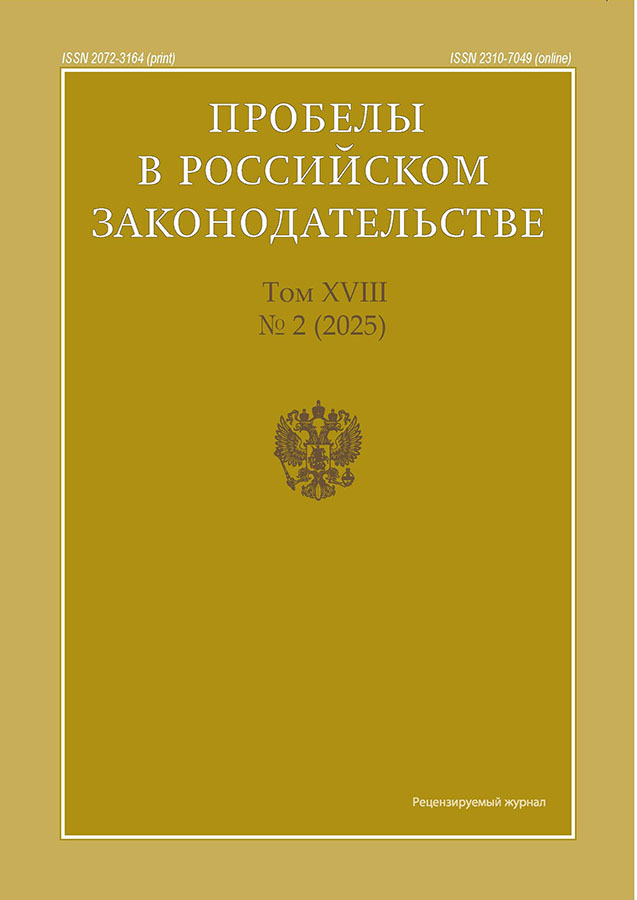Methods of Legal Linguistics and their Use for Solving Communicative Problems in the Conduct of Certain investigative Actions
- Authors: Tsypina A.V.1
-
Affiliations:
- Kuban State University
- Issue: Vol 18, No 2 (2025)
- Pages: 90-96
- Section: Criminal Law Sciences
- URL: https://journals.eco-vector.com/2072-3164/article/view/678699
- DOI: https://doi.org/10.33693/2541-8025-2025-18-2-90-96
- EDN: https://elibrary.ru/KQMNYV
- ID: 678699
Cite item
Abstract
The purpose of the study is to substantiate the need to use in the production of investigative actions based on the communicative aspect, the synergy of language and law and the resolution of criminal procedural issues related to the use of certain linguistic methods. The article is devoted to improving the activities of law enforcement agencies through the integration of knowledge from various scientific fields, particularly linguistics and law. The article explores the techniques of forensic linguistics used in the preliminary investigation phase, focusing on the examination of language patterns during interrogations and the detection of verbal cues associated with deceptive statements. The author proposes linguistic techniques, such as specification of descriptions, linguistic provocations, and language traps, which can help optimize communication between investigators and interviewees. Attention is drawn to the problems of stylization and language standardization in procedural documents, which can lead to the distortion of information and the rejection of testimony in court. It is emphasized that the use of linguistic knowledge can enhance the professional culture of law enforcement officers, improve the quality of procedural documents, and increase the effectiveness of investigative actions.
Full Text
About the authors
Alla V. Tsypina
Kuban State University
Author for correspondence.
Email: sytinalla@yandex.ru
SPIN-code: 4460-0523
Cand. Sci. (Philol.), Assoc. Prof., Department of Criminal Procedure, A.A. Khmyrov Faculty of Law
Russian Federation, KrasnodarReferences
- Alexandrov A. S. Characteristics of the questions used during judicial interrogation. Legal linguistics. 2004. No. 5. Pp. 169–180. (in Rus.).
- Golev N. D. Jurislinguistics: socio-educational aspects. Jurislinguistics. 2003. No. 4. Pp. 5–11. (in Rus.).
- Zayats I. V. The use of linguistic knowledge in the investigation of crimes: Dis. ... of Cand. Sci. (Law). Saratov State Academy of Law. rights. Saratov, 2000. 230 p.
- Pershin A. N., Efimkina N. V. The practice of detecting lies by investigators. Psychopedagogy in law enforcement agencies. 2007. No. 1. Pp. 19–21. (in Rus.).
- Repin A. V. Problematic aspects of establishing communicative contact during the preparation and conduct of interrogation of a suspect and an accused. Bulletin of the Siberian Law Institute of the Ministry of Internal Affairs of Russia. 2020. No. 3, Pp. 53–59. (in Rus.).
- Simonenko S. I. Psychological grounds for assessing false and right messages: Dis. ... of Cand. Sci. (Psycholog.). Lomonosov Moscow State University. Moscow, 1998. 113 p.
- Shepelev A. N. Legal language as a phenomenon of legal life. Bulletin of TSU. 2015. No. 8. Pp. 65–70. (in Rus.).
Supplementary files









